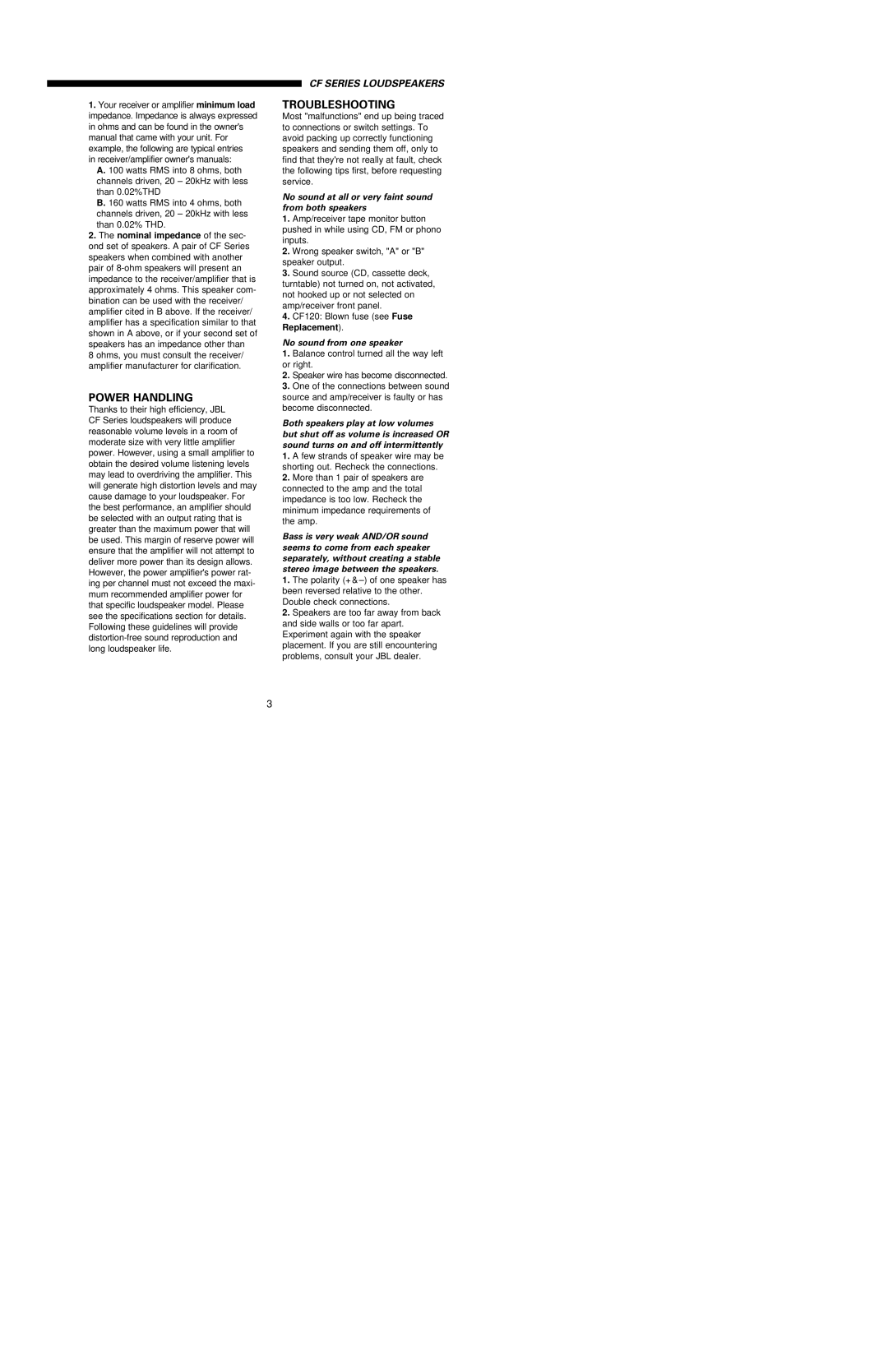
1.Your receiver or amplifier minimum load impedance. Impedance is always expressed in ohms and can be found in the owner's manual that came with your unit. For example, the following are typical entries
in receiver/amplifier owner's manuals:
A.100 watts RMS into 8 ohms, both channels driven, 20 – 20kHz with less than 0.02%THD
B.160 watts RMS into 4 ohms, both channels driven, 20 – 20kHz with less than 0.02% THD.
2.The nominal impedance of the sec- ond set of speakers. A pair of CF Series speakers when combined with another pair of
8ohms, you must consult the receiver/ amplifier manufacturer for clarification.
POWER HANDLING
Thanks to their high efficiency, JBL CF Series loudspeakers will produce reasonable volume levels in a room of moderate size with very little amplifier power. However, using a small amplifier to obtain the desired volume listening levels may lead to overdriving the amplifier. This will generate high distortion levels and may cause damage to your loudspeaker. For the best performance, an amplifier should be selected with an output rating that is greater than the maximum power that will be used. This margin of reserve power will ensure that the amplifier will not attempt to deliver more power than its design allows. However, the power amplifier's power rat- ing per channel must not exceed the maxi- mum recommended amplifier power for that specific loudspeaker model. Please see the specifications section for details. Following these guidelines will provide
CF SERIES LOUDSPEAKERS
TROUBLESHOOTING
Most "malfunctions" end up being traced to connections or switch settings. To avoid packing up correctly functioning speakers and sending them off, only to find that they're not really at fault, check the following tips first, before requesting service.
No sound at all or very faint sound from both speakers
1.Amp/receiver tape monitor button pushed in while using CD, FM or phono inputs.
2.Wrong speaker switch, "A" or "B" speaker output.
3.Sound source (CD, cassette deck, turntable) not turned on, not activated, not hooked up or not selected on amp/receiver front panel.
4.CF120: Blown fuse (see Fuse Replacement).
No sound from one speaker
1.Balance control turned all the way left or right.
2.Speaker wire has become disconnected.
3.One of the connections between sound source and amp/receiver is faulty or has become disconnected.
Both speakers play at low volumes but shut off as volume is increased OR sound turns on and off intermittently
1.A few strands of speaker wire may be shorting out. Recheck the connections.
2.More than 1 pair of speakers are connected to the amp and the total impedance is too low. Recheck the minimum impedance requirements of the amp.
Bass is very weak AND/OR sound seems to come from each speaker separately, without creating a stable stereo image between the speakers.
1.The polarity (+ &
2.Speakers are too far away from back and side walls or too far apart. Experiment again with the speaker placement. If you are still encountering problems, consult your JBL dealer.
3
